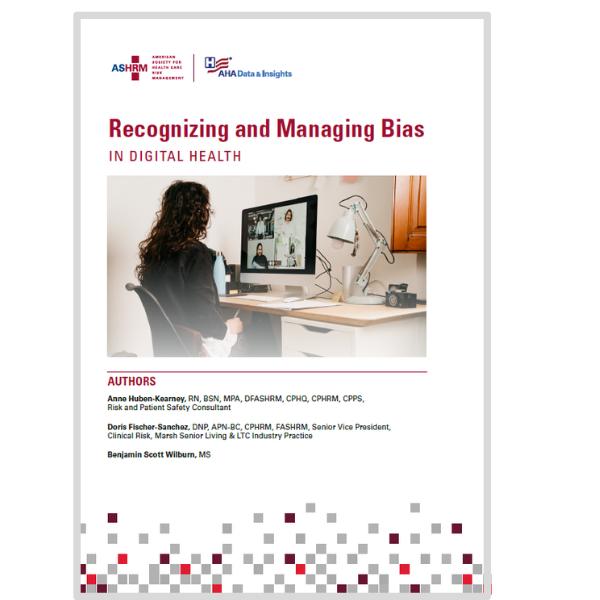
White Paper: Recognizing and Managing Bias in Digital Health

In this third installment of our Recognizing and Managing Bias white paper series, Recognizing and Managing Bias in Digital Health, we continue to explore the impact of implicit biases on decision-making and behavior. In our previous papers, Recognizing and Managing Bias in the Ambulatory Health Care Setting and Recognizing and Managing Bias in the Inpatient Health Care Setting, we examined how unconscious beliefs shape interactions and outcomes in various health care environments.
This latest edition shifts the focus to digital health, highlighting how these biases manifest in the rapidly evolving world of technology-driven care. The white paper is designed to help health care organizations and risk professionals explore the definition and impact of unconscious and implicit biases on health care delivery and patient safety involving digital health technologies. As we began reviewing digital technology and implicit bias, artificial intelligence (AI) began to dominate the digital transformation of health care. With the emergence of this revolutionary technology, it is equally important to recognize the influence of bias in the clinical algorithms employed for patient care and safety.
Download Instructions
Login with your ASHRM Member account

